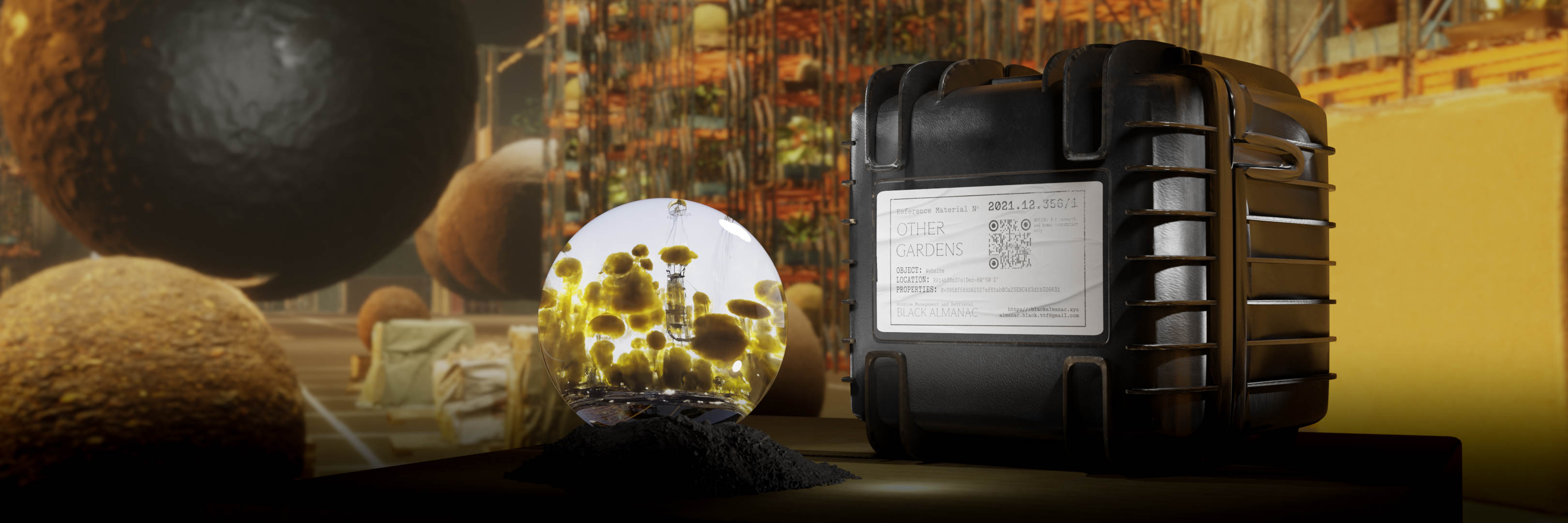
OTHER GARDENS
OPEN PROJECT ︎︎︎Food cultures in space tend towards legibility and orderliness. In science fiction, a world beyond scarcity is represented by the subatomic replicator in the Star Trek franchise, a utopian labour saving device that is the hopeful cousin to the ultra-processed sandwiches in 2001: A Space Odyssey or the energetic goo from The Matrix that boasts “everything the body needs.” In either case, a local axis of disgust and desire is translated to a new environment where it can feed contemporary anxieties and fears. When the context shifts to industry and government programs, emergent trends in food and agro-tech are faithfully incorporated (The Martian provides a rare moment of agricultural realism in film, though in service to verisimilitude only: you cannot detoxify regolith with shit).
In many ways, humans already live on Mars. Our awareness, extended via sensors and robotic arms, is busy cultivating, sampling, and turning over Martian soil. SpaceX’s plans for underground hydroponics and faceted glass domes soon return us to the least habitable settings on earth, where artificial biospheres like the Antarctic Eden ISS are researching food production for space. Yet even vertical farms, aquaponics, and fertiliser drones retain more than an echo of a food system bent towards cultural and economic will, and not the gastronomic possibilities of our planetary condition. The 2019 paper “Feeding One Million People on Mars” estimated the means by which a population of one million could sustain itself within 100 years, but the study was implicitly about environmental shifts closer to home. It noted key technologies including gene editing, cellular agriculture, and synthetic biology, farming methods that effectively resist our cultural imperatives because, in short, they are far more difficult to see.
An agriculture beyond earth would not be obligated to retain the smooth geometry associated with extensive crop cultivation and domesticated animals. Instead of regularity and repetition, it might be altogether messier– less conjoined to political exigencies, an ecology as complex as a thriving garden yet steered by an intelligence that bears little resemblance to our own. If insight is the capacity to extract understanding, outsight rests on such questions of vision. To escape the programming of our shared history may require practices less like prescience and closer to hallucination.
In many ways, humans already live on Mars. Our awareness, extended via sensors and robotic arms, is busy cultivating, sampling, and turning over Martian soil. SpaceX’s plans for underground hydroponics and faceted glass domes soon return us to the least habitable settings on earth, where artificial biospheres like the Antarctic Eden ISS are researching food production for space. Yet even vertical farms, aquaponics, and fertiliser drones retain more than an echo of a food system bent towards cultural and economic will, and not the gastronomic possibilities of our planetary condition. The 2019 paper “Feeding One Million People on Mars” estimated the means by which a population of one million could sustain itself within 100 years, but the study was implicitly about environmental shifts closer to home. It noted key technologies including gene editing, cellular agriculture, and synthetic biology, farming methods that effectively resist our cultural imperatives because, in short, they are far more difficult to see.
An agriculture beyond earth would not be obligated to retain the smooth geometry associated with extensive crop cultivation and domesticated animals. Instead of regularity and repetition, it might be altogether messier– less conjoined to political exigencies, an ecology as complex as a thriving garden yet steered by an intelligence that bears little resemblance to our own. If insight is the capacity to extract understanding, outsight rests on such questions of vision. To escape the programming of our shared history may require practices less like prescience and closer to hallucination.
Reference Material No: 2021.12.356/1
Object: Website (Essay, On-Chain Art, Planetarium)
Location: RA14h39m37s|Dec-60°50′2″
In Collaboration With: SonLa Pham, Claude Speeed
Object: Website (Essay, On-Chain Art, Planetarium)
Location: RA14h39m37s|Dec-60°50′2″
In Collaboration With: SonLa Pham, Claude Speeed